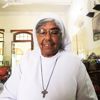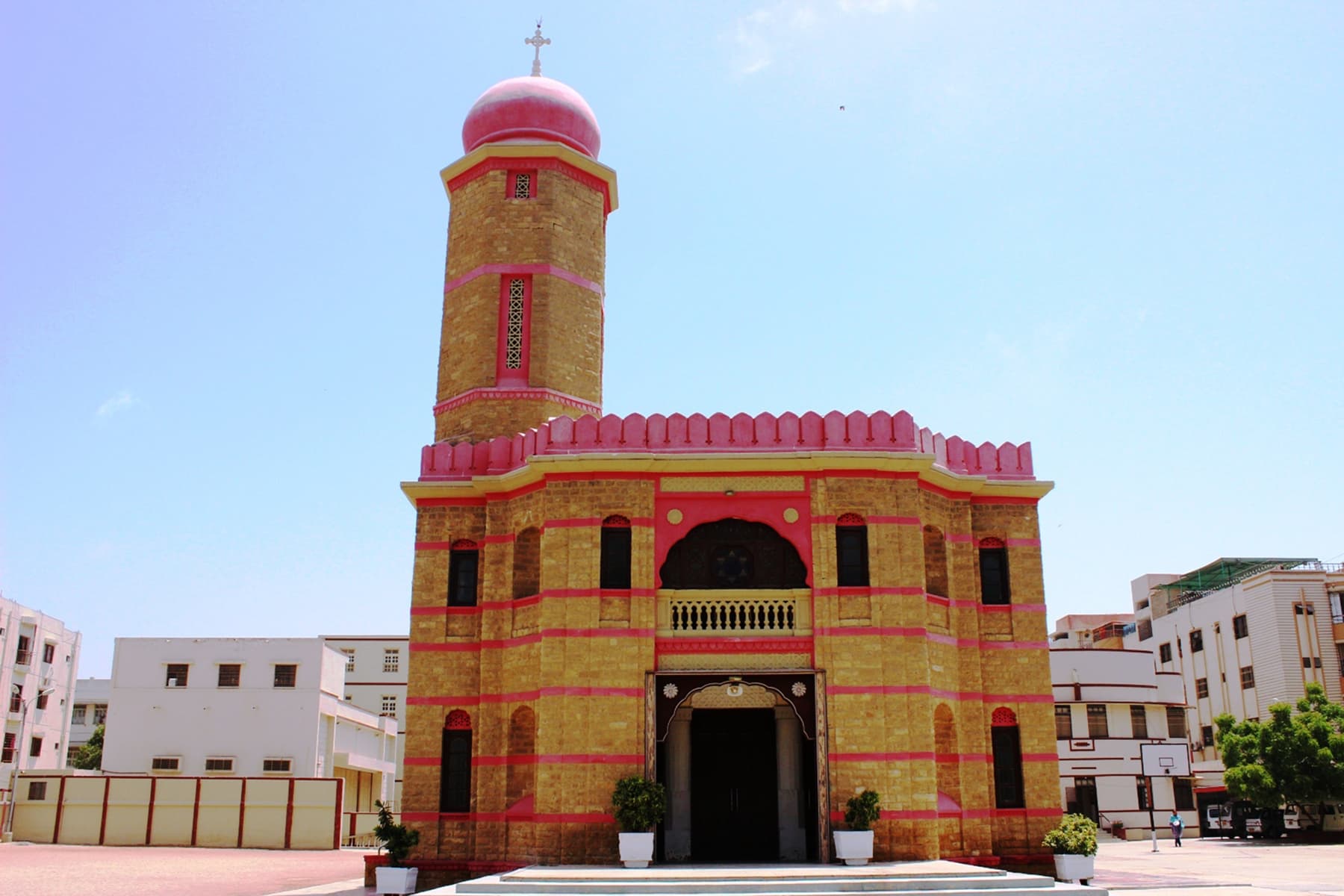
Pedro had moved to Karachi by the end of 19th century; his granddaughter Barbara Anne, born in Karachi in 1939, shares her memoirs.
Barbara Anne was born to Antoinette D’Souza on April 17th, 1939 in Karachi, Sindh to a Konkani speaking family hailing from Goa. Her father was a revenue officer with the Sindh Lands Department, and her mother was a homemaker. Barbara is the third of four sisters and five brothers. “I was delivered by Dr. Himal Das at his hospital in Karachi,” she recounts. She was raised in Karachi and in Goa, before Partition. Two of her brothers died in their infancy. Barbara shares that her paternal grandfather, one of the early settlers in Karachi from Goa, was the first town planner of the Soldier Bazaar. “He was born in 1865. His name was Pedro D’Souza. The Portuguese were peaceful people but not progressive. Many Goans therefore moved to Bombay and Africa for better livelihoods. My grandfather opted for Karachi. He came here with a few of his Goan friends towards the end of the 19th century,” she says.
Karachi used to be a dense jungle in those days. He decided to clear some of the area and build a colony there. It was called the Cincinnatus Town. He also laid the foundation for St Lawrence Church in that town. The road that leads to the town was named after my grandfather, after his demise in 1912, in recognition for his services.
“We used to have our own little house there. My grandfather had a large family of seven boys and three girls that were living there. My grandmother sold that house after his death, and we moved to Saddar where I spent most of childhood years,” Barbara shares.
Her mother used to live in Goa before her marriage. “In those days, the boys in Karachi would travel to Goa to find a bride. They felt their roots were there and fathers would be eager to have their daughters married off to men working in the cities. That’s how my father was married to my mother and they came to Karachi, and settled here permanently.”
Her mother used to take her to Goa to be with her grandparents and extended relatives. “Whenever there was a new baby expected in the family, she would take us to Goa. There were no permits in those days. We would get the ship tickets in the morning, and get on it in the evening. My parents made a lot of new friends in Goa, and they would also visit us in Karachi from time to time [before Partition]. On one occasion, we saw the colorful festival of Holi in Goa, and remember that I was scared of the colored powder people were throwing at each other.”
In Goa, Barbra used to hear conversations of older people, and picked up Konkani from them. “I’m able to converse in the language and sing songs, but cannot read or write it. One of the Konkani devotional songs for the Church she still remembers is “My love, my love don’t be afraid, I’m not going to leave you.”
Barbara obtained her primary education from St Vianney’s School and high school education from St Joseph Convent for Girls in Karachi. She recounts the system of education at school was based on old-fashioned disciplinarian practices. “They would use the cane if you didn’t study, but it was accepted. The handwriting had to be perfect. You had to be on time and regular. Whatever our teachers said was accepted. Our parents would not take up for us, they would take up for the teachers,” she says.

English, Religion, Geography, Art were curricular subjects she enjoyed whereas Needlework, Sports, Debates and Music lessons were regular co-curricular activities. She borrowed books from her high school library. “The British Council library was at a small distance from school but we didn’t need to go there because the school library had ample number of good books.”
At home, DAWN, Morning News and Evening Star were widely read newspapers. Barbara says her father was an avid reader. Barbara took piano lessons, participated and won in debating competitions. She remembers her father’s help with academics had a major influence on maintaining good grades in school. “He was a strong believer in our education. He would help us with homework and trained me to be a good debater,” she says.
Mr. Mobad, a Zoroastrian gentleman living close to their school used to arrange movie nights for students of Catholic families at the Paradise House Cinema in Karachi. Some of the films she remembers seeing at the cinema are Heaven Knows Mr. Aniston, The Bells of St Mary, Joan of Arc and the Ten Commandments.
At the time of Partition, she had just been promoted to 6th grade, and had started studying History. Barbara recounts that period as ‘the takeover’. “We got these new history books in our class with simplified biographies of Mohammad Ali Jinnah, Jawaharlal Nehru and Gandhi. There was a whole lot written about independence in the book but it was too much for us to grasp, because these leaders had just taken over. I was eight years old. Independence was a big word for me. I grasped some meaning of it when I saw a big procession of Muslims on [Victorian] carries wearing big garlands. Then there was the takeover in Karachi. The British were lined up and handing over administrative affairs to the Pakistanis. Then I saw the coins coming out with the Pakistani flag on them. Before those, we used to have portraits of King George the VI on the coins. I grasped through it all. But I could feel a certain amount of fear, and a certain amount of nostalgia, and a certain amount of people missing something, because they were happy with the British,” she recounts. “I didn’t experience much of the British rule but got feedback very vaguely, and I took it in.”
After Jinnah’s demise in 1948, Barbara witnessed the procession of his burial in Karachi, from her school. She also remembers the assassination of Liaquat Ali Khan the following year, became sensational news at her school and a holiday was declared at the school the next day. “That was very sad.”
After Partition, her mother’s house in Goa was converted into St Xavier School. “It was handed over to Church authorities by one of my uncles, when my mother was no longer living there. I went to see it once. It’s a grand building now but the school administration still calls it Mrs. D’Souza’s house.” In 1973, her entire family migrated to Canada and lives there nowadays.
In 1961, Barbara joined the St Joseph Convent as Sister. “In those days, it was considered a privilege amongst Goan Christian families to have one or two members become a priest or a nun. Nowadays there is so much of materialism that families are not very happy to part with their children, for religion, because it is a kind of permanent separation from them. I saw my parents for 12 years after joining the Church ministry, and then they left for good.”
Her mother passed away in 1992, and her father passed away in 1997.
Barbara also saw the Queen of England taking a walk by herself in Karachi in 1961, during her visit to Pakistan, with General Ayub Khan. “She was just passing down the road in Karachi alone and I caught a glimpse of her, and waved at her. She waved back at me.
”Her final message to everyone is: Be happy, think positively, and take things in your stride, remembering what you have learnt by way of values, spiritually and culturally.”
________________________
(Oral history with Barbara Anne, April 27, 2017)
Courtesy: Stanford Libraries